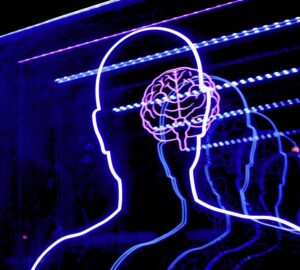A slim majority of Massachusetts voters say they plan to vote in favor of a psychedelics legalization initiative at the ballot next week, according to a new poll.
With just days before the election, the Emerson College Polling/WHDH survey found that 50 percent of likely voters support the measure, known as Question 4, while 44 percent oppose it and 6 percent remain undecided.
Democrats are most likely to say they back the reform proposal, at 59 percent. A plurality of independents (49 percent) and minority of Republicans (36 percent) said the same.
Question 4 would allow adults 21 and older to legally possess, grow and share certain amounts of psychedelics such as psilocybin, ibogaine and DMT.
Fifty-six percent of respondents who said they’re voting for the Democratic presidential nominee, Vice President Kamala Harris, are in favor of the psychedelics initiative, compared to 39 percent of those who intend to vote for the GOP nominee, former President Donald Trump.
Support was especially strong among those who said they’ll be casting their ballot in the U.S. Senate race for incumbent Sen. Elizabeth Warren (D-MA), with 60 percent of her backers supporting the proposal. Warren herself recently endorsed Question 4—though she stressed the reform must be enacted with a thoughtful regulatory framework in place.
The latest poll involved interviews with 1,000 likely voters in Massachusetts from October 24-26, with a +/-3 percentage point margin of error.
The survey offers a more positive projection for the psychedelics campaign, Massachusetts for Mental Health Options (MMHO), compared to a recent University of Massachusetts Amherst/WCVB Poll that found that 43 percent of residents are in favor of the proposal and another 43 percent are opposed.
Activists have working to close the gap to ensure a majority comes out in support next week. For example, the veteran service organization (VSO) Heroic Hearts Project recently released an ad promoting the reform as a pathway to provide a critical alternative therapy option for people with serious health conditions.
Meanwhile, Gov. Maura Healy (D) in January drew attention to testimony around a veterans-focused bill that she’s introduced, and has since been enacted, to create a psychedelics work group to study the therapeutic potential of substances such as psilocybin.
Enactment of the HERO Act followed a Massachusetts joint legislative committee’s decision to advise the legislature not to pass the broader statewide psychedelics legalization initiative. Secretary of the Commonwealth William Galvin certified in July that that activists collected more than enough valid petitions for that proposal to go before voters.
—Marijuana Moment is tracking more than 1,500 cannabis, psychedelics and drug policy bills in state legislatures and Congress this year. Patreon supporters pledging at least $25/month get access to our interactive maps, charts and hearing calendar so they don’t miss any developments.Learn more about our marijuana bill tracker and become a supporter on Patreon to get access.—
Lawmakers were required to consider the psychedelics measure, spearheaded by MMHO, after the state certified advocates had submitted enough valid signatures in an initial petitioning round last year.
In May, the Special Joint Committee on Ballot Initiatives issued a majority report that formally recommended against passing the measure as drafted.
The campaign first filed two different psychedelics reform initiatives in August, and after the state attorney general determined that they both met the constitutional requirement for ballot placement the following months, activists decided to pursue the version that included a home cultivation option.
Eight cities across Massachusetts have enacted policies to locally deprioritize enforcement of laws against psychedelics, an effort that has been led by BSNM: Salem, Somerville, Cambridge, Easthampton, Northampton, Amherst, Provincetown and Medford.
The Cambridge City Council and Somerville City Council also voted to endorse the statewide psychedelics ballot measure in August.
Separately, a different Massachusetts legislative committee advanced a bill in February that would legalize psilocybin therapy in the Commonwealth and set up a framework to license facilitators who would supervise medical, therapeutic and spiritual applications of the drug.
Rep. Mike Connolly (D) also filed a bill in 2021 that received a Joint Judiciary Committee hearing on studying the implications of legalizing entheogenic substances like psilocybin and ayahuasca.
Photo courtesy of Dick Culbert.
Marijuana Moment Read More


